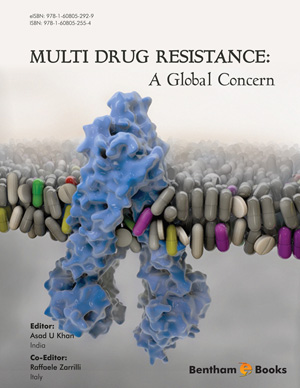Abstract
Drug resistance in tuberculosis (TB) is known since the start of anti-tubercular therapy to treat tuberculosis. It arises as a result of inadequate treatment procedures or poor compliance to drugs by the patients, which result in selection and spread of resistant tubercle bacilli in the population. Multidrug resistance (MDR), and recently extensive drug resistance (XDR), have become a great challenge to our fight against TB. The resistant forms of tuberculosis are difficult to treat and the treatment is lengthy, more toxic and costlier than for drug sensitive form. The accumulation of mutations in the genes targeted by anti-TB drug is the primary mechanism behind the development of resistance. However, other mechanisms such as impermeability of bacterial cell to drugs and activation of efflux mechanisms also contribute significantly to drug resistance. Current tests to diagnose resistant TB are either lengthy, less sensitive or less specific or are expensive enough to be used in low financial clinical settings. The drugs being used to treat drug resistant TB are again costly, have side effects and still are less effective. To develop suitable and effective diagnostic tools and cheaper and less toxic effective drugs against resistant tuberculosis, a comprehensive understanding of its molecular mechanisms is needed.
Keywords: Tuberculosis, anti-TB drugs, MDR, XDR, drug sensitivity, molecular mechanisms






















